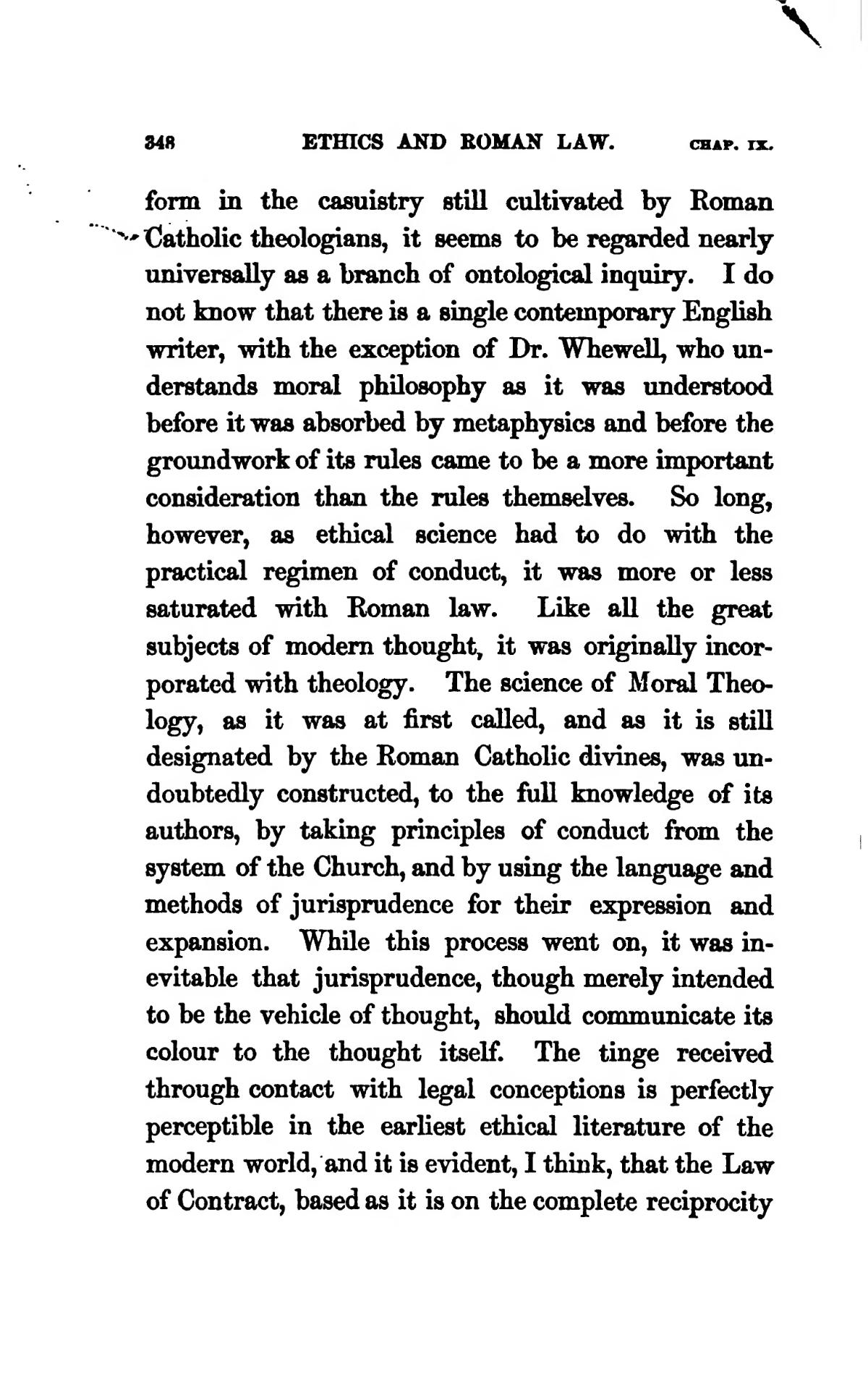form in the casuistry still cultivated by Roman Catholic theologians, it seems to be regarded nearly universally as a branch of ontological inquiry. I do not know that there is a single contemporary English writer, with the exception of Dr. Whewell, who understands moral philosophy as it was understood before it was absorbed by metaphysics and before the groundwork of its rules came to be a more important consideration than the rules themselves. So long, however, as ethical science had to do with the practical regimen of conduct, it was more or less saturated with Roman law. Like all the great subjects of modern thought, it was originally incorporated with theology. The science of Moral Theology, as it was at first called, and as it is still designated by the Roman Catholic divines, was undoubtedly constructed, to the full knowledge of its authors, by taking principles of conduct from the system of the Church, and by using the language and methods of jurisprudence for their expression and expansion. While this process went on, it was inevitable that jurisprudence, though merely intended to be the vehicle of thought, should communicate its colour to the thought itself. The tinge received through contact with legal conceptions is perfectly perceptible in the earliest ethical literature of the modern world, and it is evident, I think, that the Law of Contract, based as it is on the complete reciprocity
